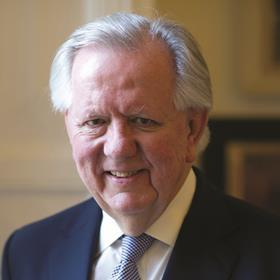Not much happens in politics in August. The few decent political programmes go off air and we indulge in what is known in the trade as the silly season – when the aftermath of Love Island is more prominent in public discourse than global warming.

But not this year. No. 10 has cancelled all staff leave before the end of October, which is a clear sign that Boris Johnson is preparing for an election before Christmas. The outcome of that election will entirely depend on his success or otherwise over Brexit.
If we leave one way or another by Halloween – what an appropriate night in the circumstances – then Johnson calculates the threat from Nigel Farage’s Brexit Party disappears like snow in midsummer. Given the collapse in Labour support, he will look forward to an adequate majority in parliament to allow him to see off the opposition for another five years. The next election would be in 2024.
The risk for the prime minister is that if he fails to leave and is blocked from getting a no-deal exit, then he faces an election in which Farage becomes the Conservatives’ nemesis. By splitting the pro-Brexit vote as his party did in the Brecon and Radnorshire by-election, he could condemn Johnson and his party to opposition.

And who would lead the resultant administration? Hardly Jeremy Corbyn, whose appeal even to hardened party members is on the wane. Possibly Jo Swinson, the Liberal Democrat leader, if her ‘Bollocks to Brexit’ message delivers a raft of former Tory and Labour seats. Most likely would be Keir Starmer, the former director of public prosecutions, who has led Labour’s opposition to no-deal. Whoever emerges, the outcome might well be terminal for the Conservative Party as we know it.
If he fails to leave the EU, the PM faces an election in which Farage becomes the Tories’ nemesis
In other news, we now know more about the new man at MHCLG. In 2017, Robert Jenrick proposed building homes on government land and selling them to the under-40s at cost. That’s pretty radical in that it could mean a sale at a 60% or even 70% discount. How resales would be monitored, who would be eligible and how these homes would be allocated we aren’t told, but what is clear is that the new secretary of state believes in home ownership.
So expect initiatives on Right to Buy and the continuation of Help to Buy, although this former exchequer secretary might realise that encouraging first-time buyers to borrow more than would normally be available to them is a potential disaster in the making.
What we don’t yet know is what he thinks of the planning system nor how much money the new chancellor, Sajid Javid, will allow him.
New housing minister
Jenrick’s new housing minister is Esther McVey. Having lost in Wirral West in 2015, she now sits for George Osborne’s safe Cheshire seat of Tatton. First appointed a junior minister by David Cameron, she was briefly secretary of state for work and pensions in the last government before resigning over Brexit and standing for the leadership in this last contest when she was first to be eliminated with just nine votes.
A minister of state role is a demotion but she is certainly ambitious and will be grateful to at least stay in government. She is a committed and combative right-winger. What her views on housing are we are yet to discover, but it would be good politics for her to announce a review of permitted development legislation and to hint that the stamp duty regime is in need of a radical overhaul.
The truth is that everything in politics is eclipsed by Brexit. However we voted in the referendum, we just want the whole mess resolved one way or another so we can get on with the rest of our lives. So perhaps the time to judge this team will be if they are returned to their jobs after the next, increasingly likely, early election.
Steve Norris is chairman of Soho Estates and This Land






























No comments yet